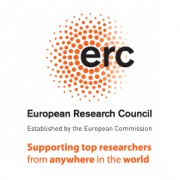Events
The Cambridge Companion to the Dutch Golden Age: book launch

In August The Cambridge Companion to the Dutch Golden Age has been published by Cambridge University Press. It contributes chapters by Utrecht University scholars Prof. Maarten Prak (Economic and Social History), Dr David Onnekink (History of International Relations) and Dr Dirk van Miert (Cultural History).
During the seventeenth century, the Dutch Republic was transformed into a leading political power in Europe, with global trading interests. It nurtured some of the period’s greatest luminaries, including Rembrandt, Vermeer, Descartes and Spinoza. Long celebrated for its religious tolerance, artistic innovation and economic modernity, the United Provinces of the Netherlands also became known for their involvement with slavery and military repression in Asia, Africa, and the Americas. This Companion provides a compelling overview of the best scholarship on this much debated era, written by a wide range of experts in the field. Unique in its balanced treatment of global, political, socio-economic, literary, artistic, religious, and intellectual history, its nineteen chapters offer an indispensable guide for anyone interested in the world of the Dutch Golden Age.

Maarten Prak emphasizes the central role of cities, particularly those of the province of Holland, for the flourishing economy of the Golden Age, which consisted largely of trade and industry. Regent families, town councils and urban institutions ensured a robust urban civic fabric in which citizens took an active part.

David Onnekink builds on this interpretation in explaining why the decentralised Dutch Republic and its overseas networked empire functioned effectively: the bottum-up structure of the body politic could absorb and negotatie a wide variety of power-balances. What kept these going was not so much a particular governing structure, but rather a discursively shaped political culture of the regent class founded on provinces’ formal sovereignity but constantly negotiating the informal but real powers of other bodies and offices.

Focusing on educational practices, Dirk van Miert likewise emphasizes the complex and multifarious infrastructure of Dutch society. Guilds, schools and universities catered to a wide a variety of students. The Reformed church played an important role in education, but had no monopoly. Like Prak and Onnekink and other contributors Van Miert warns against searching the roots of modernity in the Golden Age: schools were pragmatic, but learning how to interprete the bible was just as useful as knowing how to do double bookkeeping.
Maarten Prak, David Onnekink and Dirk van Miert are also connected to Institutions for Open Societies – an interdisciplinary research area of Utrecht University focused on the development and expansion of healthy open societies everywhere.
Book launch
The Cambridge Companion to the Dutch Golden Age will be launched on Tuesday 25 September 2018 at theVOC-hall, Bushuis/Oostindisch Huis, Kloveniersburgwal 48, Amsterdam. Everyone is welcome. Programme:
16.00 Welcome
16.15 Public lecture ‘Reflections on Dutch Golden Age studies’, Professor Benjamin Kaplan, University College London
16.45 Presentation of the first copy of the Cambridge Companion to the Dutch Golden Age to Professor Henk van Nierop
17.00 Drinks reception
- Title: The Cambridge Companion to the Dutch Golden Age
- Editors: Helmer J. Helmers & Geert H. Janssen
- Contributors: Helmer J. Helmers, Geert H. Janssen, Maarten Prak, J. L. Price, Pepijn Brandon, Judith Pollmann, David Onnekink, Danielle van den Heuvel, Michiel van Groesen, Charles H. Parker, Christine Kooi, Angela Vanhaelen, Claartje Rasterhoff, Wayne Franits, Theo Hermans, Stijn Bussels, Dirk van Miert, Harold J. Cook, Jonathan Israel
- Publisher: Cambridge University Press
- ISBN: 9781316623534
You must be logged in to post a comment.


